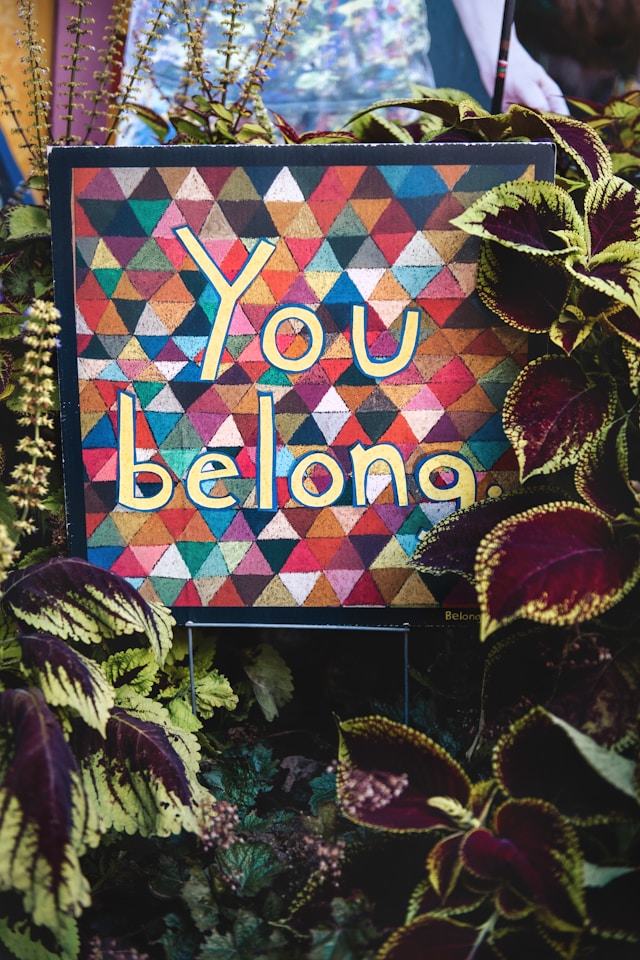The Importance of Integrating Diversity Equity and Inclusion in Your Coaching Practice
It is hard to escape conversations around Diversity, Equity, Inclusion and Belonging (DEIB). News headlines about expanding or shrinking workplace programs, or commentary on how race, gender, and other social categorizations impact the current climate, constantly bring up the subject of DEIB. Online coaching transcends geographical limits. This allows us to work with diverse clients reflecting society’s complexity. Health and wellness professionals need to improve cultural competency. This is increasingly important to effectively serve clients and elevate the standards of our coaching practice.

What is DEIB?
Each of the terms Diversity, Equity, Inclusion and Belonging, isolated, has a distinct meaning, and used here, they build on the other.
In short, DEIB encourages us to cultivate diverse environments where everyone receives fair treatment and equal access to opportunities, acknowledging existing disparities. Building on that, we give individuals and their viewpoints a voice in the discussion. Because of this important interplay, these same individuals feel respected, valued and can show up and participate as their authentic self.
While this might seem like a big lift, at its heart, it is about creating safe and supportive environments. Fundamentally, this is what we seek to do as coaches. Before we can ask a client to trust, share and connect with us, we need to create a space that invites them to do so. Growing our cultural competence achieves this.
Empathy vs. Cultural Competence
One hallmark of an exceptional coach is the ability to meet our clients where they are with empathy. Dr. Teresa Wiseman notes the four key attributes of empathy include:
- Perspective taking
- Refraining from judgment
- Recognizing the emotion
- Communicating our understanding about that emotion.
Specifically, I can understand what you are feeling, reflect it back, and provide some sort of meaningful support. Elaborating on that framework, Brene Brown highlights in her book, Atlas of the Heart, “We need to dispel the myth that empathy is ‘walking in someone else’s shoes.’ Rather than walking in your shoes, I need to learn how to listen to the story you tell about what it’s like in your shoes and believe you, even when it doesn’t match my experiences“.
While humans are hard-wired to have some level of empathy, it is a skill that we can continually develop to help us better connect with others. On the other hand, cultural competence is about gaining knowledge and understanding of different worldviews, while also being aware of your own cultural worldviews. Whether or not we like it, we all approach our day and interactions with our own unconscious views (sometimes biases) based on our culture and lived experience. Increasing our competence requires us to be aware of our views, how they might impact how we show up in the world and then expand beyond that. It is a deeper level of awareness.
Understanding Cultural Competence
Superficially, it seems if we were all merely more empathetic, then DEIB wouldn’t be a concern. However, this would be a faulty premise. Empathy is a skill that should be honed, while cultural competence is a knowledge base that needs to be fostered. The more culturally competent you become, the less uncomfortable you will be when posed with diverse and varied clients. And in doing so, you reduce the risk you will alienate, miss connection points, or provide harmful or inappropriate support.
To place this in context, suppose a transgender man shows up for a coaching appointment. You can be empathetic, listening to his challenges and health and wellness goals, but lack cultural competence, which can ultimately hurt your client. This can show up in overt ways, such as continually misgendering your client during session – or it can be more subtle, such as blanketly referring the individual to a medical practitioner that doesn’t provide or understand gender-affirming care. Neither of these things impact your ability to empathize (i.e., I believe you when you say x and I understand that must be hard). However, both things do a great deal of damage in creating a space where a person feels truly seen, respected, valued, and able to show up as his true self.
Cultural competence permits you to create ideal environments for practicing empathy with ease and depth. In supportive spaces, richer connections are fostered. And ultimately, this means successful outcomes.
Tips on How to Incorporate DEIB Into Your Coaching Practice
How can you take steps towards practices that integrate DEIB into your coaching practice?
- Continued Education: Most certifying boards require some continuous education, because we live in an ever-changing world. The same holds true for DEIB. Continue to explore resources on various cultures, identities and things like social determinants of health. The landscape changes rapidly, you want to stay connected and informed.
- Stay Curious: Asking questions, particularly ones that can be sensitive, is terror inducing. But sometimes the best way to learn is to inquire.
- Humility/Self-Awareness: Please do not fake it until you make it…. People are adept at picking up on insincerity, and that does more harm than good. Part of the first two bullets is this third one. Be aware of what you might not know or what makes you uncomfortable, give yourself some grace, and then learn or seek help from a mentor or peer.
- Accessibility/Inclusivity: Review the resources you leverage – are they full of services that only cater to a specific demographic? Do you use outdated terms? Can people with disabilities connect with you? Review your documents, content, and other materials you use. Then ask someone else to review them also.
Conclusion
Finally, I also challenge you to think beyond the larger, often politicized social categorizations, such as race and gender. Sometimes overlooked, but equally important, are things such as age, access to healthcare, income inequalities (regardless of race), abilities (including neurodivergence and mental health), and religious beliefs. Understanding how these intersecting identities shape a unique human experience enables you to provide more supportive coaching sessions. This leads to successful outcomes for your clients and contributes to the continued growth of your coaching practice.

